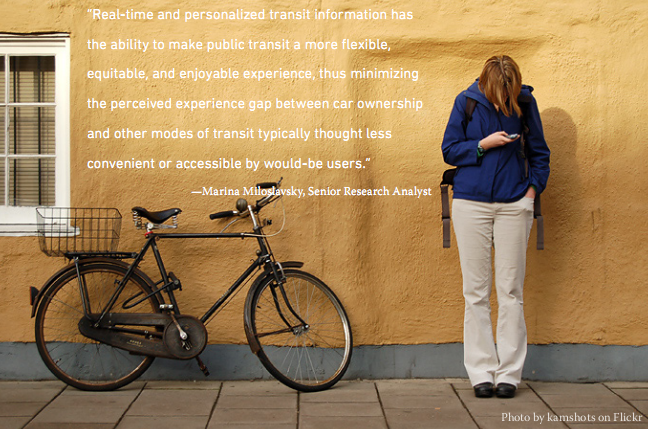 According to a study from Latitude Research and The Next American City, smartphones could be the key to convincing you to give up the car and get on the bus. The study asked 18 consistent drivers from Boston and San Francisco to use public transportation during the work week and asked them to answer the following questions:
According to a study from Latitude Research and The Next American City, smartphones could be the key to convincing you to give up the car and get on the bus. The study asked 18 consistent drivers from Boston and San Francisco to use public transportation during the work week and asked them to answer the following questions:
- How can new technologies improve not only transit but also our larger experience of cities?
- How can information access encourage people to make more sustainable transit choices?
- Can tech help transit make us feel more connected to each other – and what lessons can businesses in other industries apply?
Through the experiment and participants’ responses, researchers determined that most of the reliance on our own vehicles stems from the sense of autonomy it gives us. Consumers value convenience, control, and flexibility versus ideals like comfort or status. People that usually opt to drive themselves revealed they would opt to use public transit were there extended “location-aware, on-the-go mobile access to alternative transit options [that] would allow for up-to-the-minute comparisons of means, routes, and costs.”
The study also found that apps are becoming a popular way to ease into public transportation. “Apps can make spontaneous experimentation with transit options fun, and can reward small sustainable choices (e.g., 4 bike rides this week vs. 1 card = 20 points). Turning the commute into a game would encourage people who would usually get in their own cars to instead take the bus.
In addition to being environmentally friendly, Latitude also remarks that this type of change can create closer communities. Although if you want to keep your head buried in your phone and play Angry Birds during your morning commute, that’s okay too.


